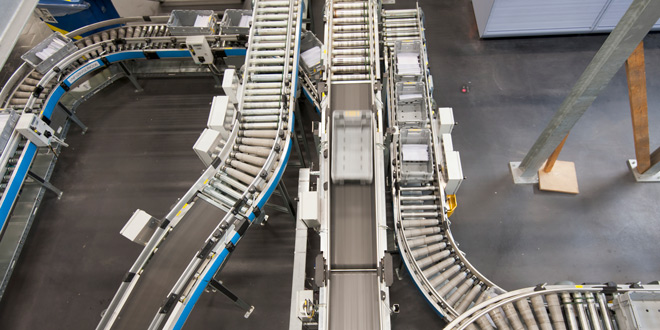In light of ongoing supply chain issues, Warren Swindlehurst, president of U.S. Wire & Cable Corporation, shares insights on the crisis and best practices retailers can utilize to ensure on-time delivery and reduce the negative impact of supply chain headaches. U.S. Wire & Cable Corporation includes three industry-leading divisions in the garden hose, power cord and industrial lighting sectors: Flexon Industries, U.S. Wire & Cable and Voltec Power & Lighting.
The pandemic has brought about a supply chain crisis that has inflicted hardships on most industries in the U.S. and abroad. The hardware and building industries have been particularly vulnerable to this crisis due to labor constraints, shipping delays, increased costs and raw material availability. China’s stern rules—intended to stop the spread of coronavirus—only exacerbated the issue. According to CNBC, China’s coronavirus restrictions impact the global supply chain, noting the “sheer importance of China when it comes to global trade means that any small disruption in China will have a ripple effect across the supply chain.”
Many business owners have felt the crushing impact of the supply chain issues and identified it as a significant threat to the livelihood and success of their companies. Throughout the pandemic, Flexon has weathered the storm extremely well due in part to three key strategies.
As much of the world shifts to an endemic way of thinking, it is essential that our industry leaders share principles that have proven useful in adapting to the challenges brought on by supply chain issues that are likely to persist or reoccur.
On-Time Delivery is Imperative
Delivering products expeditiously is and always will be imperative. Below are three business objectives that your organization can work towards to ensure on-time delivery in light of impending supply chain issues.
Team Focus
Labor challenges have been a major result of the supply chain crisis. Businesses across the U.S. are largely short-staffed, which has made it harder to provide quality customer service and consistency. Uncertainty from the pandemic has led to many people stepping away from their jobs and exploring new pursuits. A Washington Post article noted that the “Great Resignation” has resulted in more than 43 million people leaving their jobs in the past year. The manufacturing industry has been hit particularly hard by these changes, with a nearly 60% rise in staff turnover rates when compared with pre-pandemic times.
Consumers value quality service they can count on. Success for any company is dependent on the quality of service they provide to its customers. When workers are treated well, it translates into the quality of service perceived by customers and reduces employee turnover.
At Flexon, we are fortunate to have dozens of employees who have been with the company for multiple decades. We’ve learned the importance, especially during a time of uncertainty, to increase the quality of care provided to employees. Enhanced customer service via employee retention can help other manufacturers and industry leaders control what’s within their control during this and other supply chain crises.
Made in the USA
It is no secret that the U.S. has felt the brunt of the issues with shipping backlogs and port congestion. Skyrocketing prices, global delays, panic shopping and market anxiety have forced retailers to determine what is essential to source and what products to keep on the shelves. This change has renewed interest in U.S. manufacturing.
Flexon has recently expanded to two manufacturing facilities and six distribution centers across the country which has increased water hosing production by 150% and more than doubled our wire production. Sourcing many of our raw materials domestically has allowed us to elevate domestically sourced and produced products to get ahead of current and future supply chain issues. These strategies enable us to meet the demands of our customers in a timely manner, which, in turn, promotes customer loyalty.
Producing product in the U.S. helps decrease dependence on the global supply chain and lends an opportunity to invest in American businesses that have been adversely affected by the pandemic. Hopefully, more legislation like the Chips Bill will be enacted to promote domestic manufacturing beyond semiconductors. Incentives should be provided to the hardware industry and other sectors that rely largely on product imports.
Moving production closer to home allows companies to address some of the hurdles that come with reliance on imported goods. Although shifting to domestic manufacturing is not possible overnight, decreasing reliance on foreign goods is a goal our industry should strive for.
Use of Recycled Materials
Consumers are becoming more and more environmentally conscious and interested in sustainable products. Despite their best efforts to minimize their environmental footprint, large levels of plastic are still ending up in waste fills. The need for items like disposable masks, gloves and wipes has added to environmental concerns and made it increasingly difficult to cut down on waste.
According to a recent Forbes article, “consumers across all generations—from Baby Boomers to Gen Z—are now willing to spend more for sustainable products. Just two years ago, only 58% of consumers across all generations were willing to spend more for sustainable options. Today, nearly 90% of Gen X consumers said that they would be willing to spend an extra 10% or more for sustainable products, compared to just over 34% two years ago.” Because consumers, particularly younger ones, are willing to pay more for recycled products, to attract new generations of loyal customers to their stores, retailers will soon favor manufacturers committed to this practice. Harvard Business Review published an article about the importance of building a more sustainable supply chain. The article states that “economic, social and environmental requirements are all important.”
Flexon reuses more than 50% of materials that would ordinarily go to landfills. We have an ambitious goal of using over 80% recycled PVC by 2025. Repurposing these materials allows us to do our part in making a positive impact on the environment and produce products that our retail partners’ customers prefer. We hope others in the industry follow suit and place an emphasis on sourcing recycled materials because it’s the right thing to do and it’s a tool for addressing supply chain disruptions.
Providing exceptional care to employees, implementing sustainable manufacturing practices and ramping up U.S. production of our hose and wire products have helped us weather the supply chain crisis. By sharing what’s working and what’s not, we can strengthen the industry and preserve and grow jobs. We can make a real difference in the lives of others while also meeting the evolving needs of retailers and their consumers.
To contact Warren, click here.


